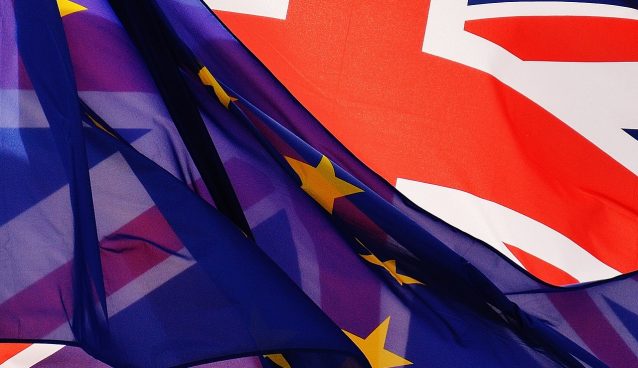2016: The Year The People Said No

The German writer and lawyer Bernhard Schlink, in a recent interview on the BBC’s Newsnight programme, expressed his disappointment on the results of the 2016 UK Referendum as follows: “…we on the Continent, we always thought we fall prey to ideologies and political nonsense and political passion and the English and the Anglo-Saxons, they are the voice of common sense and reason. So Brexit was a big disappointment for us. One could even call it tragic – I mean through Brexit, England wanted to distance itself from the Continent. Instead it joined this wave, this continental wave of nationalist populism.”
The sentiment expressed in these words would likely resonate with those who took the opportunity (as often as they could) in the early New Year to bemoan 2016 as their annus horribilis, leaving little doubt as to the objects of their lamentation: Brexit and the election of Donald Trump.
Schlink’s error is that he praises the historical common sense and reason of the English but then fails to see that his preconceived view of the “Continent” may be the thing that does not make sense or quite chime with reason – and by “Continent” he no doubt means the EU because the UK rejected membership of the EU not fellowship with Europe.
He then derides what he calls a “wave of nationalist populism”. Like many political Europhiles, he fails to understand both human nature and the lessons of history. People widely and naturally self-identify with their country, with their own traditions, of law, of government, and of culture. So what happens when a bureaucratic and authoritarian political structure tries to impose a top-down supranationalist state upon pre-existing organic states? It intensifies patriotism among those who understand the value of liberty and national sovereignty, and fires up nationalism among the more reactionary. Fortunately, nationalism has not tended to extremes in Britain’s culture, but on the Continent they’ve not been so lucky.
Schlink’s conflating of British patriotism and nationalist populism is intellectually dishonest and shows he does not understand the “English” at all. The continental wave of nationalist populism is of the EU’s own making. It is the reaction to their action. The Eurocrats have either misunderstood human nature or they have deliberately manipulated it for their own ends. Either way, Europe as a whole will only grow more divided as long as the EU pursues political integration.
Next Schlink seeks to vilify the will of the people, as have some commentators in the UK, by labelling it as populism. Populism is, of course, used pejoratively to infer that leading individuals and groups supporting Brexit have stirred up a large part of alienated society for their own ends. The reality is that those feeling disenfranchised were stirred up by the decades-long policies of the EU and their allies in academia, the Westminster Bubble, and the mainstream media. What is more, those leading the call for Brexit can hardly be accused of being demagogues for the simple reason that they want less government, not more government. They want power to flow back down to the people. They want the people to be closer to their elected leaders so that those representatives may be held accountable.
Yet other terms, such as “tyranny of the majority” and even “mobocracy”, have been used by some British political figures to achieve the same vilification of the Leave-voting portion of the population. One wonders where those figures would be today if they had described those majorities who once elected them as “populists”, “mobs”, or a “tyranny of the majority”.
The accusations levelled at Leavers, as well as those supporting the election of Trump, are rich indeed when one considers the ugly, mean-spirited hysteria and rhetoric employed by some who identify as anti-Brexit and anti-Trump, who have not been beyond acts of violence, damage to property, and a severe lack of respect and decency. Yet these same people speak of openness, love, peace, about being inclusive and tolerant. They forget to mention that these much-signalled virtues go only one way in their book; that when something comes along with which they disagree they will exhibit quite the opposite behaviour.
So what really happened in 2016? Did Schlink’s “Anglo-Saxons” turn into rabid xenophobes and extreme nationalists or did we actually witness an uprising of common sense and reason among the people of Britain, fed up with elitism and the increasing political oppression by the political class and their counterparts in Brussels?
You see, to me 2016 was a year to be celebrated. Why? Because the people of the UK and US decided they’d had enough of the Establishment, the political class, and their allies in academia and elsewhere who have been driving both nations down a very insidious path in recent decades. They voted no to the tyranny of the status quo. They acted to take back control. 2016 was the year the people said no.
Like many in the EU, and even here at home in the UK, Mr Schlink fails to understand what happened on June 23rd, 2016. He fails to understand that we voted the way we did precisely because of that “voice of common sense and reason”. And it told us to leave.
